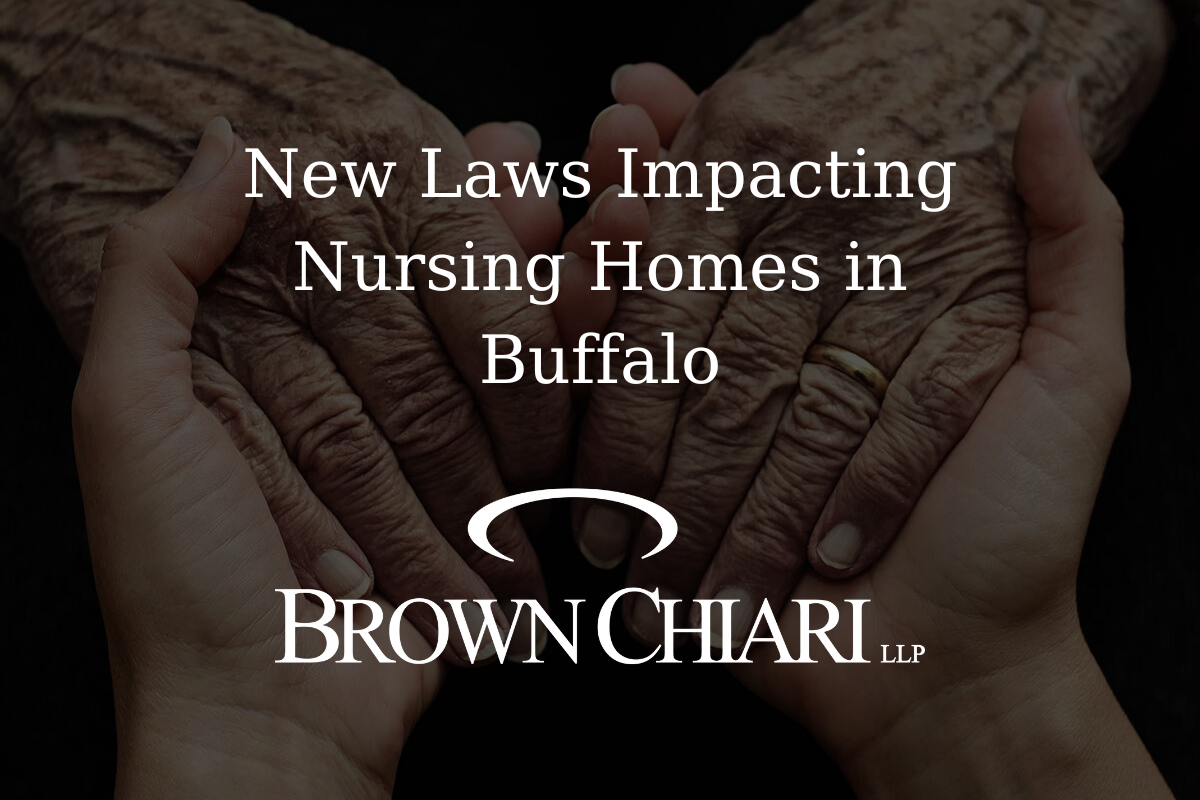In recent years, New York State has introduced a series of legislative and regulatory reforms aimed at transforming the standards of care in nursing homes. These changes are particularly significant for nursing homes in Buffalo, where concerns about staffing shortages, care quality, and financial accountability have been longstanding. Families, nursing home operators, and healthcare workers alike must understand how these new laws impact daily operations and the lives of residents.
Minimum Staffing Requirements Now in Effect
One of the most notable changes is the implementation of minimum staffing requirements for nursing homes across New York. As of April 1, 2022, all facilities must provide a minimum of 3.5 hours of direct care per resident per day. This includes:
- 1.1 hours from licensed nurses (Registered Nurses or Licensed Practical Nurses)
- 2.2 hours from certified nurse aides (CNAs)
These safe staffing laws were introduced to address ongoing concerns about poor care caused by understaffed facilities. Nursing home operators must now ensure that they meet these staffing levels consistently or face civil penalties.

Posting of Quality Ratings Required
Effective December 26, 2024, nursing homes in Buffalo and throughout New York are required to prominently display their federal CMS (Centers for Medicare & Medicaid Services) star ratings. This includes ratings for:
- Health inspections
- Staffing levels
- Quality of care measures
This legislation, passed by the New York legislature in September 2024, promotes transparency and allows residents and families to make better-informed decisions when choosing a facility.
State Actions to Address Financial Mismanagement
In late 2024, New York State took significant legal action against several nursing home operators, including those in Buffalo, who were accused of financial fraud and neglecting resident care. A multi-million-dollar settlement was reached, which included mandatory reforms to improve staffing levels, enhance resident oversight, and increase compliance with state standards.
This settlement reflects a broader push by the New York State Department of Health and the Attorney General’s office to hold providers accountable for failing to deliver safe and effective care.
Medicaid Rate Adjustments to Support Facilities
To help nursing homes manage rising operational costs and comply with new staffing mandates, the 2025 New York State Budget includes a 7.5% increase in the Medicaid operating rate for nursing facilities. While not a complete solution, the rate adjustment offers additional financial support for long-term care providers striving to meet new requirements.
Resident Rights Remain a Priority
New York continues to prioritize the rights of nursing home residents, reinforcing protections such as:
- The right to dignity and respect
- The right to be fully informed about one’s medical condition
- The right to participate in decisions regarding care and treatment
Facilities must comply with the Public Health Law and provide environments that support not just physical care, but also the emotional and psychological well-being of residents.
Certified Nurse Aide and Licensed Nurse Workforce Challenges
With the enforcement of minimum staffing levels, there is renewed focus on the training, hiring, and retention of certified nurse aides and licensed nurses. Nursing homes are now expected to provide additional training opportunities and incentives to build a sustainable workforce capable of meeting increased staffing standards.
Nursing home workers, including health care workers and nurse aides, are vital to providing the hours of care now mandated under law. Compliance will not only require filling positions but also ensuring that staff receive adequate support and resources.
What This Means for Nursing Home Operators in Buffalo
Operators must be proactive in responding to these changes. Key action items include:
- Reviewing and adjusting staffing models to meet safe staffing mandates
- Ensuring financial records and operations are compliant with state regulations
- Enhancing communication with residents and families regarding facility ratings and services
- Preparing for potential audits and increased oversight by the Department of Health
Failure to comply with these new laws may lead to civil penalties, facility sanctions, or even nursing home closures.

Looking Ahead
The recent legislation passed by the New York legislature represents a shift toward accountability and improved care standards in the long-term care industry. From Albany to Buffalo, nursing homes are expected to comply with new state standards, invest in their staff, and prioritize resident well-being.
For older adults and their families, these laws provide reassurance that the state is actively working to improve conditions in nursing homes. For providers, it is a call to rise to a higher level of transparency, responsibility, and care delivery.
Brown Chiari LLP has extensive experience handling nursing home neglect cases in Rochester and across New York. If your loved one has suffered due to poor care or staffing issues, we offer free consultations and work on a contingency fee basis—no fees unless we win. Call (716) 681-7190 or contact us online to learn how we can help.
FAQs: New Laws Impacting Nursing Homes in Buffalo
1. What are the new minimum staffing requirements for nursing homes in New York?
As of April 1, 2022, all New York nursing homes must provide at least 3.5 hours of direct care per resident per day. This includes 1.1 hours from licensed nurses (RNs or LPNs) and 2.2 hours from certified nurse aides (CNAs).
2. How does the CMS star rating display law affect Buffalo nursing homes?
Effective December 26, 2024, all nursing homes in Buffalo must prominently post their CMS star ratings for health inspections, staffing, and quality measures to help families make informed decisions about care facilities.
3. What penalties do nursing homes face for failing to meet staffing or quality standards?
Facilities that fail to meet the mandated staffing levels or other regulatory requirements may face civil penalties, increased oversight, and, in severe cases, risk being shut down by the state.
4. How are financial reforms affecting Buffalo-area nursing homes?
In response to allegations of financial misconduct, New York has enforced settlements requiring improved staffing, better financial accountability, and enhanced resident protections, impacting several Buffalo facilities.
5. What support is New York offering to help nursing homes comply with new laws?
The 2025 state budget includes a 7.5% increase in Medicaid rates for nursing facilities to help offset costs tied to higher staffing requirements and improved care standards.
